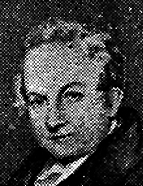

M. Kinsey. It is also important to note that the Newcastle lusophile served as a bridge between various members of the Romantic generation of British lusophiles and the prominent figures of Portugal's intellectual and literary vanguard with whom he established important connections, particularly with the liberal emigrants who had sought refuge in Great Britain due to the persecution they faced under King Miguel. In this context, he met and befriended Almeida Garrett, sparking a process of intellectual dialogue and bibliographical exchange that continued even after Garrett's return to Portugal. Their correspondence, which can be accessed at the Coimbra University Library, attests to their ongoing relationship. Another individual the lusophile claims to have known is José Maria de Sousa Botelho, Morgado de Mateus, an author who allegedly provided Adamson with valuable insights on Camões. Adamson reportedly sought his help while writing his Memoirs of the Life and Writings of Luís de Camoens (1820). We also know that the lusophile corresponded with Pedro de Sousa Holstein, Duke of Palmela, and with José Gomes Monteiro. This is confirmed by Adamson in letters exchanged with Almeida Garrett. Any interactions between this author and the previously mentioned personalities may have occurred either in the chapel of the Portuguese embassy in London or at the residence of Lord Holland. However, it was through booksellers and bibliophiles James Gooden and Richard Heber, from whom Adamson frequently purchased valuable editions and specimens and who granted him unrestricted access to their collections of Portuguese books, that the lusophile met Garrett.
Following a trend typical of many nineteenth-century English authors interested in Portugal and its literature, he also focused on Camões. However, he surpassed his contemporaries by systematically studying Portuguese poetry, particularly from the Renaissance through to the first Romantic generation. The exceptional scope and specialised nature of his work established Adamson as a notable lusophile and a unique figure among Anglo- Portuguese scholars of Romanticism; he may well be the one who produced the largest number of works with the greatest consistency. However, in Britain, his name was primarily recognised within a limited circle of individuals interested in Portugal, as he was considered a minor figure in the English Romantic literary scene. It is important to acknowledge that this author was primarily a disseminator, translator, and commentator, occasionally lacking in imagination and poetic genius. Despite the exhaustive and comprehensive nature of his works on Portuguese literature, he did not attain the monumental character and influence of Robert Southey's works, particularly in the realm of historiography.
This work is financed by national funds through FCT - Foundation for Science and Technology, I.P, in the scope of the projects UIDB/04311/2020 and UIDP/04311/2020.
